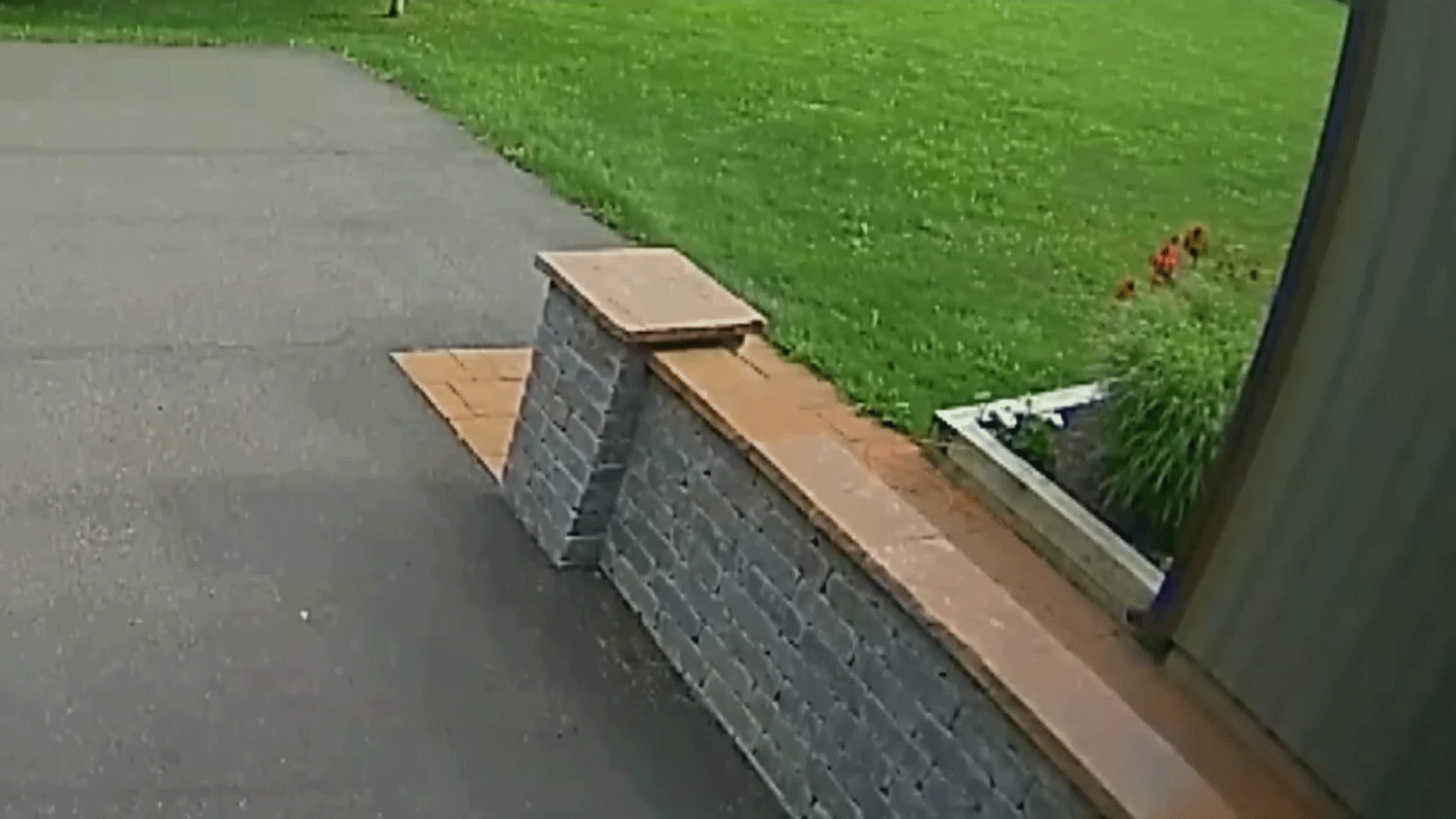Canadian Ring Camera Captured The First Audio And Visual Recording Of A Meteorite Hitting Earth
The incredibly brief moment and sound was recorded in July last year
A man from Prince Edward Island returned home from walking his dogs to find a pile of dust-like debris on the walkway to his front door, which ended up being caused by a meteorite — and his Ring camera captured it hitting earth in a historic first. Joe Velaidum, a resident of Marshfield, Prince Edward Island, a small Canadian island northeast of Maine, checked his Ring camera footage to see where the debris came from upon returning from his walk. A friend suggested that the mysterious flying object could be a meteorite, so Velaidum collected samples and sent them into the University of Alberta's meteorite collection curator Chris Herd.
Herd discovered that the sample was chondrite, the most common type of space rock that strikes Earth, and that it likely originated from the asteroid belt between Mars and Jupiter. The footage is believed to be the first time that both sound and visuals of a meteorite strike have ever been recorded. Herd told CBC News
"It's not anything we've ever heard before. From a science perspective, it's new,"
The meteorite has been named the Charlottetown Meteorite after Prince Edward Island's capital city, and it landed on the brick-lined front entrance to Velaidum's house. He'd walked directly over the spot that the meteorite struck just seconds before when he left to take his dogs for a walk. Had he lingered there a few seconds longer, the meteorite could very well have struck him or one of his dogs. Velaidum said he was shocked to consider that he was standing right where the meteorite fell from hundreds of millions of miles away, noting it probably would have ripped him in half. The University of Alberta said,
Upon examination of photos of the fragments, Herd confirmed the discovery was, in fact, a meteorite. By chance, he had planned a family trip to Prince Edward Island a mere 10 days after the fall; the trip now included a diversion to check the space where the meteorite landed.
Herd said that these meteorites typically enter Earth's atmosphere at an all-but-incomprehensible speed upwards of 37,000 miles per hour before slowing to terminal velocity. He estimates that the Charlottetown Meteorite likely struck Velaidum's entrance way at over 120 mph by the time it made impact. The noise made by the asteroid's impact is widely believed to be the first time in human history that the sound of a meteorite strike has ever been recorded. Luckily the Charlottetown Meteorite was small enough that it didn't cause damage; Velaidum and Herd collected about 95 grams of fragments from the crash site in total.
The odds of a meteorite traveling hundreds of millions of miles and landing on someone's doorstep are unfathomably small, and landing directly in the line of sight of a Ring camera is truly remarkable. No matter how far we believe we've come as humans, moments like this remind us how little we really know.
